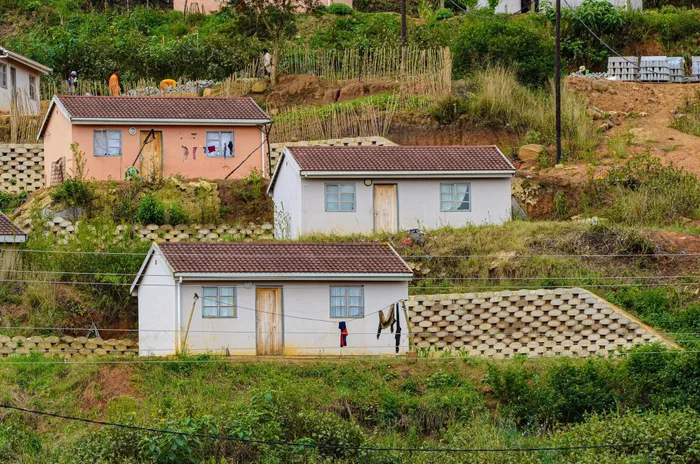
Department of Human Settlements says through its policy framework, it has set aside 40% of its expenditure amounting to R11 billion for women-owned businesses.
Image: KZN Human Settlements
Housing projects led by women contractors consistently stand out, and they are completed on time, says Department of Human Settlements Minister Thembi Simelane.
Women's impact on the housing sector
Speaking at the Young Women Of Africa Miles For Change Summit held in Limpopo over the weekend, Simelane said when they hand over BNG/RDP houses built by women, they find that many go the extra mile by furnishing homes for indigent beneficiaries.
“This is true in action and a testament to the fact that women are nation builders. Indeed, when you empower a woman, you empower a nation.”
According to the Minister, through the department's Social Housing Programme, which provides affordable rental accommodation for the low-income market, primarily those earning between R1,850 and R22,000 per month, they have observed that most occupants are women.
She says this is largely because these projects offer enhanced security, including 24/7 protection and child-friendly play facilities, creating a safe and supportive environment for families.
According to Stats SA, over 40% of households in South Africa are headed by women.
Policy to prioritise women's contractors
In response, Simelane said the Department of Human Settlements has deliberately prioritised women’s economic empowerment.
“The Department of Human Settlements plays a pivotal role in driving women's economic empowerment within the sector. Through our policy framework, we have set aside 40% of our expenditure amounting to R11 billion for women-owned businesses.”
She said this commitment ensures that women are prioritised and benefit meaningfully from the DHS grant spending.
Women dominating the property market
Absa’s latest Homeowners Sentiment Index (HSI) for the third quarter of this year shows that rising homeownership aspirations among single women continued spurring activity in the local residential property market, with more women applying to purchase homes for the first time.
The Index, which measures consumer confidence in the property sector, found that female applicants account for more than half of all first-time homebuyer applications to date this year.
“We’ve seen strong optimism in the property market hold steady over the past year, and what’s encouraging is that people are acting on it,” said Tshepo Mashashane, head of strategic positioning and partnerships at Absa Home Loans.
“It’s especially positive to see more women stepping into homeownership for the first time. It shows that the market is not only recovering, but also diversifying in meaningful ways.”
SA's property market in 2025 experienced a significant resurgence, driven primarily by multiple interest rate cuts and an accommodative lending environment, which boosted buyer confidence and affordability, according to BetterBond.
The bond originator said earlier this month that this year saw a notable increase in home loan volumes and house prices, with regional hotspots emerging and women taking a prominent lead in property ownership.
The company said that this year, almost 70% of all homeowners in South Africa are women buying property on their own or jointly with men.
“And, the numbers suggest that more women are opting to buy on their own than ever before,” noted Bradd Bendall, the national head of sales at BetterBond. “Many of these women buyers were younger than 40, which suggests that they are prioritising their financial independence from a younger age.
“Traditional notions of waiting for white picket fences and wedding rings have given way to a new generation of financially empowered women who view property ownership as a cornerstone of independence and long-term security.”
Just over 53% of BetterBond’s women applicants were said to be younger than 40, compared with the almost 47% in the older cohort.
As the year draws to a close, South Africa’s housing market demonstrates resilience and renewal.
Lower interest rates, stronger household incomes, and a more robust lending environment have set the stage for sustained recovery.
“The year’s steady rebound underscores the property sector’s role as both a driver and a mirror of broader economic recovery. If this momentum continues into 2026, the market looks poised to build on this year’s foundation of growth and confidence,” Bendall said recently.
FAST COMPANY (SA)
Related Topics:
